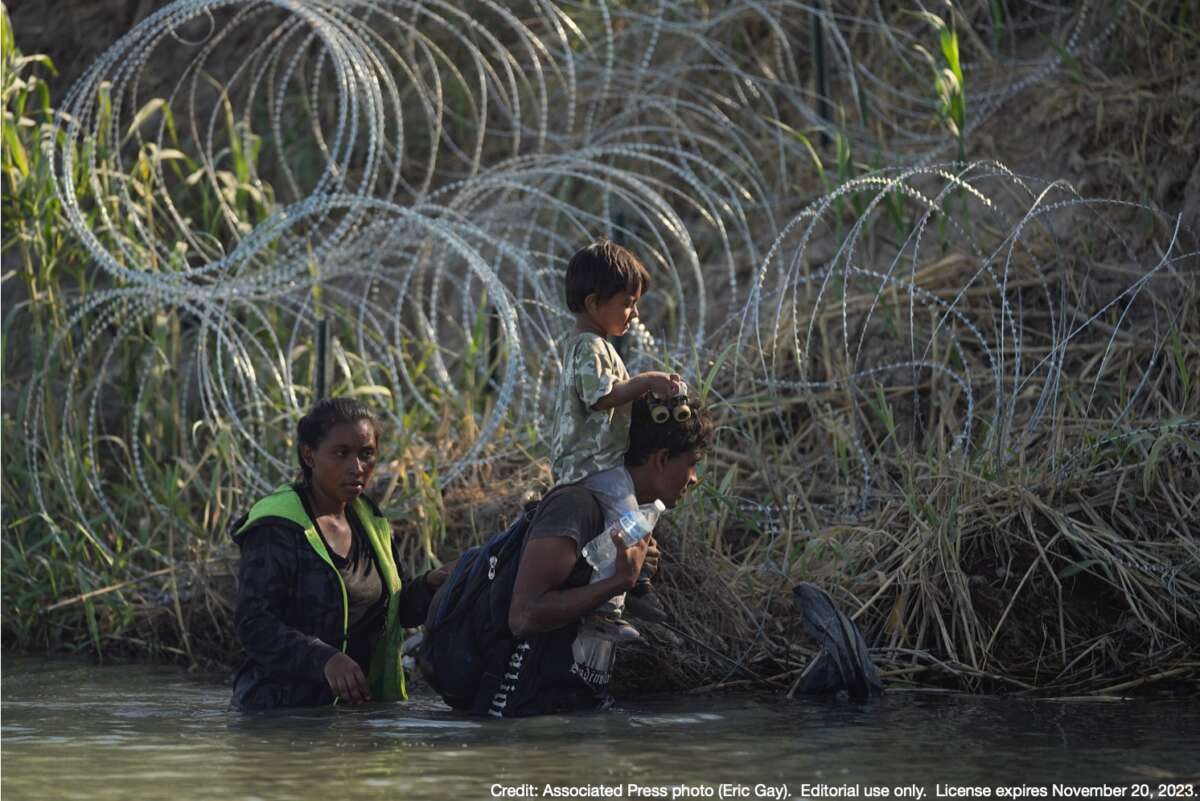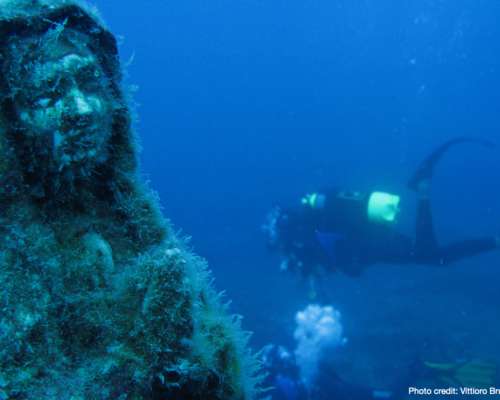These are difficult times for our nation, for many reasons. We know this from public opinion polling, from the lyrics of recent country music songs, from the angst, anger and confusion in people’s eyes. We know this from the several civil and criminal indictments that have been filed against the previous president. We are inudated with choices, but what would Jesus do?
In the worst of times, people will sometimes, perhaps wisely challenge their assumptions. “What went wrong” they may ask? People, patriots all of good will can disagree on what these assumptions are. Among most political conservatives, many moderates and more than a few liberals (I include liberals because Republicans do not have a monopoly on faith) is the presumption that America is a Christian nation. This is an assumption that is not easy to prove. But if it were true hypothetically, then shouldn’t we ask “What would Jesus do” whenever our federal or state government implements a new, controversial and drastic policy? I’m not talking about price supports, student loan forgiveness, economic inflation or gerrymandering. I’m referring to immigration.
In this post, I’d like to discuss the policy of the Governor of Texas to build a barrier mid-river in the Rio Grande which makes it fairly difficult for illegal aliens to cross into the U.S., but makes it much easier for them to get entangled in the barrier and possibly drown in the process. Then, there is the razor wire on the northern banks of the river. We know Governor Abbot’s intentions, but what would Jesus do if the decision were His? Would Jesus turn people away? Would Jesus string concertina wire (razor wire) to tear the clothing and flesh of men, women and children who attempt unauthorized entry into this country? With heat stress temperatures this summer well over 105 degrees in the Rio Grande basin, would Jesus deny water to thirsty, heatstricken women and children? Would any (could any) true believer do this?
My personal thoughts
I have two minds on immigration. I am not against authorized (legal) immigration. My parents and grandparents were immigrants who came to America in the early twentieth century for a better life, just like people from other countries in Europe did then. And as people from other parts of the world do now. Back then, Congress discharged their responsibility to set immigration policy to deal with the needs and demands of our nation, and this policy was duly enforced by the Executive Branch. But for four decades now, Congress has not kept abreast of the status quo, except to criticize whoever occupies the White House at the moment. Meanwhile, conservative cable news reminds us periodically of “caravans” of immigrants approaching the border from Central and South America.
On the other hand, where do we draw the line? Do we let anyone into this country on demand if authorities cannot find any reason to exclude them? The poem which appears on the Statue of Liberty which we are all familiar with reads in part:
“Keep, ancient lands, your storied pomp!” cries she
With silent lips. “Give me your tired, your poor,
Your huddled masses yearning to breathe free,
The wretched refuse of your teeming shore.
Send these, the homeless, tempest-tost to me,
I lift my lamp beside the golden door!”
Of course, that is what Emma Lazarus wrote. That’s not what the Framers of the Constitution wrote. Do we take the words of the poem literally? Or, are they just words?
In the interest of full disclosure
So, I am white. I didn’t ask to be born white. Nor am I any better than a person of another race because of it. Neither am I ashamed or guilty because I am white. No one should be ashamed of their race. It is what it is. Being white perhaps gave me some extra opportunities that people of color did not receive in their personal circumstances and professional careers, but whatever success I have enjoyed comes with a burden. Jesus says in Luke 12:48 “For unto whomsoever much is given, of him shall be much required.” So, I see myself as having a responsibility towards disadvantaged people in my neighborhood and in our nation. Because my wife and I have excellent medical insurance insurance and access to premium health care facilities, we wish–and would gladly pay more in taxes for–other people in the U.S. to enjoy the same access that we do.
My wife and I live in a predominantly white neighborhood. We chose this neighborhood because of proximity to family members, good schools, convenient access to both rural and urban life, low crime, so we could be among people who have retired from professional careers even as we have. You are not guaranteed these amenities by just by living in a predominantly white neighborhood. But they do exist here. We don’t like being awakened by Metallica blasting from across the street at 2:00 a.m. Nor do we like to hear loud trains, equally loud voices, barking dogs, police sirens, fireworks, gunshots, and people driving fast and furious after dark. We welcome people who settle in our neighborhood from different races, religions, countries and backgrounds. Last week, we met a lady born in Beijing who attended a neighborhood event. And we do have some people of other races in our neighborhood. In fact, we have grandchildren who are not white, and we accept and love them as grandparents do.
A recipe for fear
There are some conservative radio and cable personalities who point out that along with hundreds of thousands of Hispanics who show up at the border each year, the percent of white American citizens is concurrently on the decline. True. Already, Anglos are in the minority not only in many cities in the U.S., but in some states, too (e.g., Hawaii, New Mexico, California, Texas, Nevada, and Maryland.) But, again, while race is an important variable, it is not the only one.
Language
There is language. My German grandmother on my mother’s side probably knew less than two or three dozen words in English. Nor, as far as I could tell, did she ever attempt to improve her English-speaking proficiency. You would not find her at a soccer game, a PTA meeting, writing a letter-to-the editor, ordering in a restaurant, or taking a college class and so on. She couldn’t even work in her prime because she was unskilled and could not speak English. This was her choice. A common language can unite people, but as we learn in the book of Genesis, the lack of a common language can divide people. My grandmother loved the U.S. and treasured her U.S. citizenship when she earned it, but she never assimilated as liberals might have hoped she would. It’s not that easy.
Culture, religion, political choices, competition for jobs, poverty and other variables can divide people as well as race and language. When my previous wife died, we were living in Texas. I visited her grave twice a day for the first six months. About ten feet away from where she was buried was the grave marker for a Hispanic male, twenty-six years old when he died. I took the trouble look up his obituary and he was born in Mexico. “Macht keinen Unterschied” my grandmother might have said. The young man’s family decorated his grave with pin wheels, ribbons, statues of the Virgin Mary, photos, plastic flowers and many other things that I saw as personally distasteful. It was too bling for me. But I would notice the family occasionally visit the young man’s grave, and it was clear that they loved him and missed him as much as I did my late wife. Assuming mourners in Mexico decorate graves in festive motifs there as well, this would be a cultural difference between different people who share a common border. I would wonder back then whether the family was undocumented as more than a few in Texas are. I would wonder “What if they were deported? They would not be able to visit the cemetery to be close to the mortal remains of their son anymore?” That thought bothered me. It grieved me. On the one hand, I am concerned about a “flood” of people crossing into this country. On the other hand, I care for individuals, aliens, immigrants, sojourners looking for a better life like my parents and their parents did.
Who gets priority?
I have no personal preference or opinion on how many citizens of other countries should be allowed to enter the U.S. each year, to work, to attend school, to stay. I do believe that it makes sense to offer access to citizenship to people of other countries with special skills in demand here. And if a migrant, refugee, alien (whatever the politically correct term is at the moment) joins our military or otherwise invests herself of himself in service to America, then I think they should receive citizenship as well. I also believe in resettling people from other countries who assisted American forces in a time of conflict. A lottery? Perhaps. I would not be opposed to 10,000 or 100,000 people a year from anyplace on Earth who wins a lottery to relocate to America.
Today, I read a story in the news about an eleven-year-old girl living in Texas who was raped and murdered and then stuffed under her bed. The suspect is an eighteen-year-old alien from Guatemala. So, “Yes!” Some people here illegally do murder and rape and sell drugs sometimes, but you cannot condemn all the people from a certain country or with a certain immigration status for the actions of a few. There are too many “red-blooded Americans” who do the same.
That being said, all of these applicants for entry would have to be vetted though so that drug dealers, terrorists, murderers and others could not be allowed in.
More to the point: Operation Lone Star
Operation Lone Star has been in existence for about eighteen months. Texas Governor Greg Abbott says that this operation is “intended to counter illegal immigration, the illegal drug trade, and human trafficing.” And, for many who are released into the U.S. pending their application status outcome, the Governor is generous enough to bus them as far away from Texas possible. Who ever said that Republicans were against bussing!
The buoys are back in town
Texas is buying hundreds, no thousands of large orange, ball-shaped buoys to string in the middle of the Rio Grande like pearls. According to USA Today:
“The buoys are connected to form a barricade about 1,000 feet long. They are fastened to the river bottom and have nets below the water to prevent people from swimming beneath them. The buoys themselves rotate so that people can’t climb over them.”
“The devices are installed in what are called high-traffic areas, sections where people are likely to attempt to cross the river.
“The state has also put up miles of razor wire – braided steel wire with sharp metal pieces attached – along the Texas banks of the Rio Grande. That has resulted in adults and children being severely cut during river crossings.”
Texas Public Radio provides on-site reports as well.
At least two bodies have been found along the river lately and a number of people (including children) have required treatment—including sutures—at area hospitals.
According to some reports, concertina wire (sometimes called razor wire) was not only strung along the river bank, but was also encountered by migrants under the surface of the river as well.
According to AP reports:
“Texas Gov. Greg Abbott’s escalating measures to stop migrants along the U.S. border with Mexico came under a burst of new criticism Tuesday after a state trooper said migrants were left bloodied from razor-wire barriers and that orders were given to deny people water in sweltering heat.
“In one account, Texas Trooper Nicholas Wingate told a supervisor that upon encountering a group of 120 migrants on June 25 — including young children and mothers nursing babies — in Maverick County, a rural Texas border county, he and another trooper were ordered to “push the people back into the water to go to Mexico.”
Other migrants who did not get fouled in the nets, dragged by the current, torn by the wire were observed to faint in the heat.
The Department of Public Safety and the Texas National Guard are charged with enforcement of the Governor’s policies. However, if these public servants are uncomfortable enforcing these policies, it is may be that these policies deserve a closer look to understand why professional law enforcement officers are risking their careers by not enforcing the law.
ChatGPT weighs in
Wanting a more detailed description of the pain and tissue damage caused by razor wire, and currently exploring artificial inteligence in detail, I asked ChatGPT to “Describe the effects of razor wire on a young Hispanic child trying to enter Texas from Mexico.” This is what the artificial intelligence app came up with in less than two seconds:
“1. Physical Pain: The sharp edges of the razor wire cause immediate physical pain as it cuts into the child’s skin. The wire’s barbs can lead to cuts, scrapes, and even more severe injuries, leaving them bleeding and vulnerable.
2. Fear and Trauma: The sight of the menacing razor wire triggers a heightened sense of fear and trauma in the child. The psychological impact is immense as they come face-to-face with a dangerous obstacle that seems to reject their pursuit of safety and a better life.
3. Deteriorating Trust: The presence of razor wire, meant to deter border crossings, can erode any remaining trust the child may have in the possibility of finding refuge and acceptance. It conveys a message of hostility and unwelcome, intensifying their feelings of desperation and isolation.
4. Obstacle to Hope: The razor wire serves as a tangible symbol of the challenges they face on their journey. Instead of finding the relief and opportunity they sought, they are confronted with a harsh barrier that threatens to halt their progress and dreams.
5. Long-Term Impact: Even if the child manages to overcome the razor wire physically, the emotional scars it leaves can have long-term effects on their well-being. The memory of this traumatic encounter could haunt them, affecting their mental health and outlook on life.”
This distressing scenario underscores the larger humanitarian crisis at the border and emphasizes the need for compassionate and humane solutions to address the plight of migrants who are seeking safety and a chance for a better future.
How should Christians respond to aliens in general?
In Leviticus 19:34 the Lord says: “The alien who resides with you shall be to you as the citizen among you; you shall love the alien as yourself, for you were aliens in the land of Egypt: I am the Lord your God.” That seems plain enough. If I understand the verse correctly, we should love immigrants (aliens, migrants) as much as we love ourselves.
In Psalms 146:9 we read: “The LORD watches over the sojourners; he upholds the widow and the fatherless, but the way of the wicked he brings to ruin.” David uses the Hebrew word גֵּר, or “Gur” for stranger, which means sojourner. In W.E. Vine’s Complete Expository Dictionary of Old and New Testament Words, Vine writes:
“A ‘client’ was not simply a foreigner (nakri) or a stranger (zar). He was a permanent resident, once a citizen of another land, who had moved into his new residence. Frequently he left his homeland under some distress, as when Moses fled to Midian (Exod. 2:22). Whether the reason for his journey was to escape some difficulty or merely to seek a new place to dwell, he was one who sought acceptance and refuge.”
The Cambridge Bible for Schools and Colleges agrees:
“As in Psalm 94:6 the sojourners or resident aliens who had no rights of citizenship, orphans, and widows are typical examples of defenselessness. They are therefore specially under Jehovah’s protection, and are commended in the Law to the care of the Israelites.”
The people on our border are not yet residents because we are keeping them out, so does this verse (Psalm 146:9) disqualify them or is that just a technicality?
The people trying to cross our border are citizens of other lands. But believe it or not, they do have rights under our Constitution. They have the right to freedom of speech. They have the right to due process. If they commit a crime, they have the right to counsel. They generally may not possess firearms, and certainly they cannot vote in federal elections.
Finally, check out Jeremiah 7:5-7. In this passage scripture says:
“For if you truly amend your ways and your doings, if you truly act justly one with another, if you do not oppress the alien, the orphan, and the widow, or shed innocent blood in this place, and if you do not go after other gods to your own hurt, then I will dwell with you in this place, in the land that I gave of old to your ancestors forever and ever.”
Computer science majors who read this passage will immediately recognize it as a conditional statement. If we do not oppress the alien, orphan and widow . . . then we as a nation may hope to secure God’s blessings. Else, not. And again, in the verse appears the Hebrew word גֵּ֣ר or Gur for alien or sojourner.
There are many other passages, too.
When we consider the Bible, we should carefully examine (1) the letter of the law and (2) the spirit of the law. When the Bible speaks of your neighbor, you can construe it as being the family or families whose property immediately adjoins your own. That is the letter of the law. In that strict sense, a person who lives two doors down from me is not my neighbor at all and I have no obligation to be charitable to him. However, In Luke Chapter 10, Jesus was asked to define the term “neighbor.” He did this by speaking of the Good Samaritan. Not only was the Samaritan of a different land, he was thought by the Jews to be a scoundrel. Yet, the Samaritan helped not only a stranger, but someone who by dress or mannerism was clearly a Jew, who in better days might have despised him. The Samaritan was practicing the “spirit” of the law.
Parting thoughts
I don’t have any easy answers. I do know that I can’t find any passage in Scripture that tells us to keep people out of our country who are hungry, desperate and in many cases Christian, themselves. It would be so easy for me–for you–to harden our hearts. To demand that our elected leaders to keep them out. To say “We’re Americans and they are not! We deserve a better life. They do not!” But then on the other and, you have the Word of God. And if God can make Children of Abraham from stones, then it would not be any more difficult for Him to make Americans out of rocks at the same time.
In Matthew 25:42, 43, Jesus condemns people for their lack of charity. He says:
“For I was hungry and you gave me nothing to eat, I was thirsty and you gave me nothing to drink,
“I was a stranger and you did not invite me in, I needed clothes and you did not clothe me, I was sick and in prison and you did not look after me.”
Something to think about before you make your choices in November 2024. But don’t wait until then to help. Please.
Feature photo caption: Migrants navigate around concertina wire along the banks of the Rio Grande after crossing from Mexico into the U.S., Tuesday, Aug. 1, 2023, in Eagle Pass, Texas. Concertina wire and newly place buoys being used as a floating barrier, are making in more difficult and dangerous to cross the Rio Grande. (AP Photo/Eric Gay)



